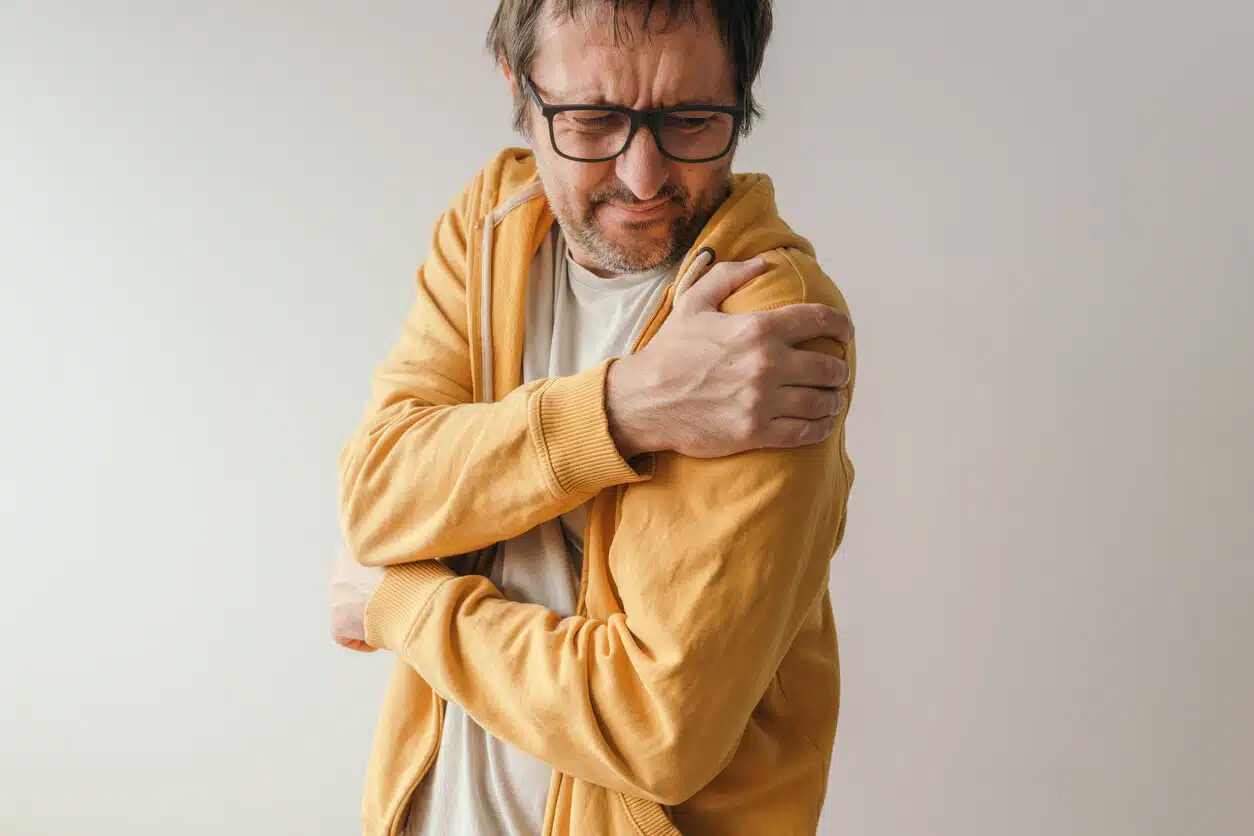
If you are experiencing shoulder pain or difficulty moving your arm, you may be dealing with a torn rotator cuff. This condition is one of the most common shoulder problems, often caused by injury or overuse.
But how can you tell if your rotator cuff is torn or strained? Understanding the warning signs and symptoms is an essential first step in seeking the right treatment.
Let us discuss the signs of a torn or strained rotator cuff, when to seek medical help, and how this condition is treated.
What Is the Rotator Cuff
The rotator cuff is a group of four shoulder muscles and their tendons that surround your shoulder joint. It helps keep the head of your upper arm bone securely in the shoulder socket.
The rotator cuff allows you to lift, rotate, and move your arm in different directions. Because this joint is so mobile, it is also vulnerable to injury.
Common Causes of Rotator Cuff Injuries
Rotator cuff injuries often happen due to overuse or wear and tear over time. They can also occur quickly from an injury like falling on your shoulder or lifting something heavy.
Some common causes include the following:
- Repetitive motions from sports like baseball, tennis, or swimming
- Aging and degeneration of the tendons
- Trauma, such as a fall or accident
- Heavy lifting, especially above shoulder level
Understanding the causes can help you protect your shoulders and prevent further injury.
Signs and Symptoms of a Torn Rotator Cuff
The symptoms of a torn rotator cuff can range from mild discomfort to severe pain. Below are the key signs to watch for:
Shoulder Pain
Pain is the most common symptom of a rotator cuff injury – it often feels like a deep ache in the shoulder and may extend down the arm. The pain may occur when you lie on the affected side or lift your arm.
Weakness in the Arm
A torn rotator cuff may make it difficult to lift or rotate your arm. Objects you used to handle easily may now feel heavy.
This could affect daily activities like combing your hair or reaching for items on a shelf.
Limited Range of Motion
If certain movements cause your shoulder to feel stiff or stuck, it could be due to a torn or strained rotator cuff. You might notice trouble moving your arm behind your back or above your head.
Popping or Clicking Sensation
Some people with rotator cuff injuries report a popping or grinding sensation when they move their shoulders. This can indicate damage to the tendons or muscles.
Swelling
Inflammation or swelling around the shoulder joint is another sign of injury. Swelling may cause the area to feel tender to the touch.
Night Pain
If you wake up at night because of shoulder pain, it might be a warning sign. This pain often worsens when you lie on the injured side.
If you notice any of these symptoms, it is time to pay attention to your shoulder health. Mild strains can often heal with rest and care, but severe tears usually require medical treatment.
When to See a Doctor
It is important to seek medical attention for shoulder pain if:
- Your pain does not go away after a few days
- You have difficulty moving your arm or shoulder
- The pain is severe and keeps you from sleeping or doing daily activities
An orthopedic doctor will evaluate your symptoms and may use imaging tests like X-rays or MRIs to determine if your rotator cuff is torn or strained.
How Is a Torn Rotator Cuff Treated
Treatment for a torn rotator cuff depends on the severity of the injury. Your orthopedic doctor may recommend the following:
Rest and Physical Therapy
For minor strains, resting the shoulder and doing physical therapy can help strengthen the muscles and improve flexibility.
Pain Relief Medications
Over-the-counter medications like ibuprofen (Advil) or acetaminophen (Tylenol) may help reduce pain and swelling. Your shoulder doctor may also recommend stronger medications if needed.
Corticosteroid Injections
If your pain is severe, a corticosteroid injection can reduce shoulder inflammation and improve mobility temporarily.
Surgery
For severe tears that do not heal with conservative treatments, shoulder surgery may be necessary. Rotator cuff repair can restore shoulder strength and function.
Your orthopedic doctor will discuss the best treatment plan for your specific condition.
Treatment for Torn Rotator Cuff in Bismarck, ND
At The Bone & Joint Center, we specialize in orthopedic care for shoulder injuries like torn rotator cuffs. Our team of orthopedic experts is committed to providing high-quality treatment to help you heal and regain mobility.
Do you suspect a torn rotator cuff? For more information or to schedule a consultation with our experienced professionals, call us today at (800) 424-2663 or use our appointment request form. We look forward to serving you!

